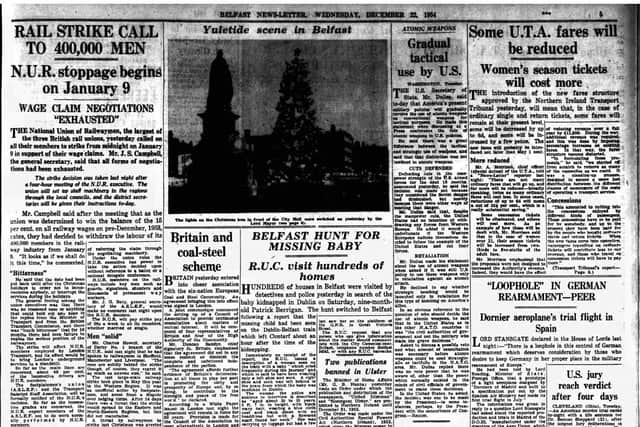Editor of News Letter retires after 50 years service (1954)
and live on Freeview channel 276
Mr James Henderson said that, although in its 218th year, the News Letter had had only nine editors, except in the first few years of its existence when there had been editors who were actually the proprietors and publishers.
Mr McKee was engaged by the late Sir James Henderson. At that time Mr McKee was a medical student at Queen’s College, “and if his appointment was a loss to the medical profession, it was a gain to journalism”.
Advertisement
Hide AdAdvertisement
Hide AdAfter some years in the sub-editorial department, Mr McKee was appointed London correspondent in 1916 and it was not long before he became a well-known figure in Fleet Street and in the lobby and Press Gallery at Westminster.


Mr Henderson said: “The Ulster leaders had the utmost confidence in his professional ability and integrity. His early years in London were a difficult period because they covered the first World War and remarkable political developments which affected Ireland.”
Mr Henderson described one of Mr McKee's journalistic exploits in 1925 which, he said, had probably had an effect upon history.
He recalled the Boundary Commission, upon which the Northern Ireland government refused to appoint representative.
Advertisement
Hide AdAdvertisement
Hide AdMr Henderson remarked: “The forecast, which indicated that the findings were not wholly in favour of the Free State, greatly alarmed the politicians in Dublin who then entered into negotiations with the government at Westminster and made an agreement with them December. 1925. “That agreement confirmed the area and extent of Northern Ireland, and was duly given legislative sanction by the Parliaments in London and Dublin.”
Mr Henderson added: “The Northern Parliament adhered to the agreement by resolution. The report of the Commission was never made public, which is a pretty good proof of the accuracy of Mr McKee’s forecast.”